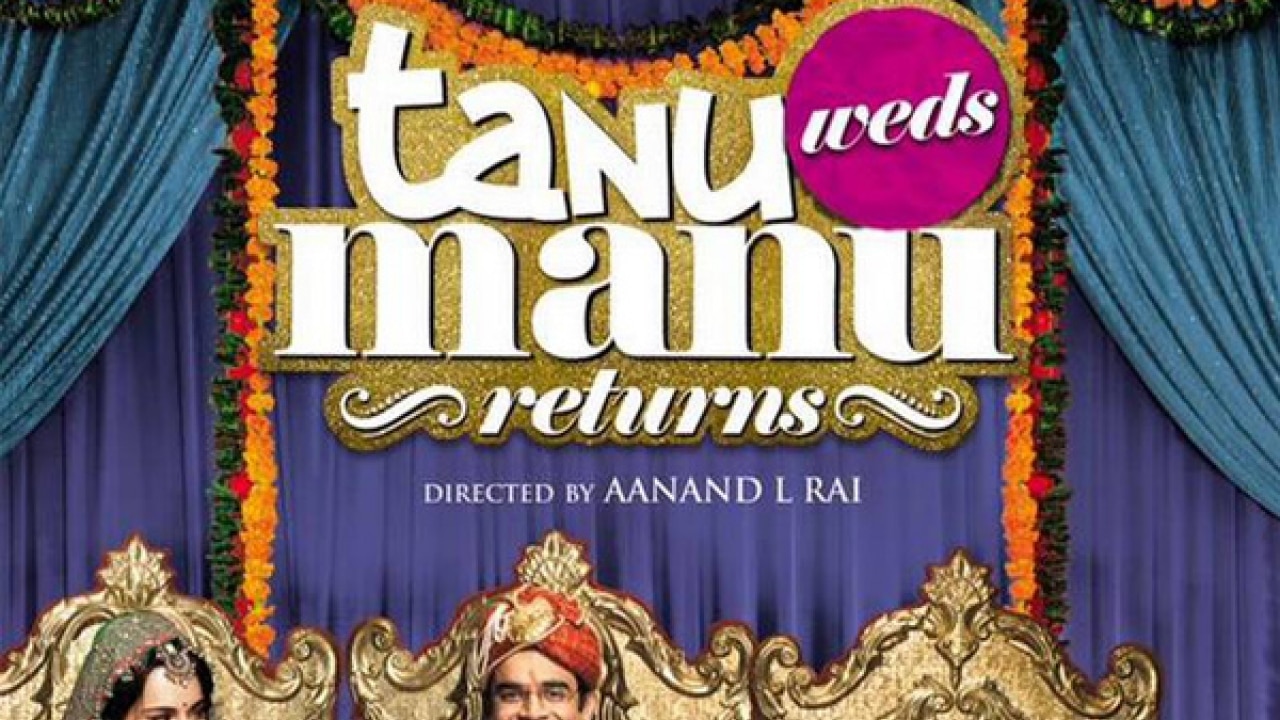
Film: Tanu Weds Manu Returns
Ratings: ***1/2
Starring: Kangana Ranaut, Madhavan, Deepak Dobriyal, Jimmy Shergill, Swara Bhaskar, Eijaz Khan, Rajendra Gupta, Mohammed Zeeshan Ayyub and others
Directed by: Aanand L. Rai
WHAT’S IT ABOUT:
The film begins four years after the marriage of Tanu (Kangana Ranaut) and Manu Sharma (Madhavan) who’re now struggling to get along with each other. After a serious clash that lands Manu in a mental asylum, Tanu finds herself back in India with her family. Manu follows soon after his friend Pappi (Deepak Dobriyal) rescues him. Both are in their respective hometowns and things just get worse when Manu decides to send his wife a legal notice. It pushes Tanu to become the same old fiery and brash woman she used to be and this time, she goes out seeking the attention of Raja Awasthi (Jimmy Shergill). Meanwhile, Manu falls in love with a student athlete from Delhi University, Kusum (also Kangana), who happens to be a look-a-like of Tanu. Matters get complicated once it is learnt that Kusum is supposed to get married to Raja. And more confusion follows when Kusum also falls for Manu and accepts his marriage proposal instead. Now the stage is set for yet another wedding, which can’t happen until Tanu and Manu are divorced. What follows is what the rest of the film is about.
WHAT’S HOT:
Tanu Weds Manu was an endearing love story with some of the most well sketched characters on screen. The same characters return and it’s good to see them once more. There is a calculated effort on director Aanand L. Rai’s part to make the film very different from his earlier offering and he succeeds in that. Himanshu Sharma’s dialogues are a highlight and lift many a scene on their pure strength. To Rai’s credit, he attempts to reconstruct the same relationships between his characters the second time – and this time, they seem radically different because they’ve evolved over time. At times, the film tilts towards the darker side, thereby offering a new perspective. The performances are top-class just like in the first part.
Madhavan, four years older and a few kilos heavier, is fabulous. Subtle and dignified, he never steps out of character even in the flimsiest of scenes. Deepak Dobriyal gets the best lines and tends to stay over-the-top most of the times. Swara Bhaskar (Payal) and Rajendra Gupta have less to do but still shine. Mohammed Zeeshan Ayyub (as Chintu) is a new addition to the cast and despite a purposeless part, he scores big time. Of course, the film’s crowning glory is Kangana who betters herself with every film she does. This time, as Tanu, she gets to do much more in terms of diversity. But her portrayal of Kusum steals the show this time. Heartwarming, honest and edgy, Kangana as Kusum is the life of the film.
WHAT’S NOT:
If this were a standalone film and not a sequel, many questions wouldn’t be raised. But it is a sequel, these are the same characters and it is their story once again. The first fight itself between Tanu and Manu at the beginning of the film that lands Manu in a mental asylum is almost ridiculous. It’s beyond logic and beyond comprehension. Rai tries hard to be bold cosmetically but it falls short because he is far more regressive where it actually matters. Manu falling in love with Kusum at first sight because she looks like his wife; the much-dreaded Raja of the first part being reduced to a chaperone in this one; Pappi stalking and harassing a girl who repeatedly tells him she doesn’t like him (why does Rai repeatedly justify eve-teasing and stalking in his films?); Chintu first addressing Tanu as ‘didi’ and then obsessing over her; Payal and her entire IVF track that is unbelievably preposterous.
The problem with TWMR is in its sheer dishonesty. If this were an Anees Bazmee brainless comedy, it would still be understandable and acceptable. One feeble speech on woman empowerment by Rajesh Sharma (who plays Kusum’s brother) is a sad attempt to cover up for what the rest of the film preaches. The climax reminds you of the melodramatic 80s – the days of K. Bapaiah and films like Tohfa and Mera Pati Sirf Mera Hai – with Tanu working and dancing in the house where her husband is getting married. Production values of the film are shoddy – nowhere even close to the first part or Raanjhanaa.
WHAT TO DO:
Despite all its flaws, watch it for the one-woman-show of Kangana Ranaut.